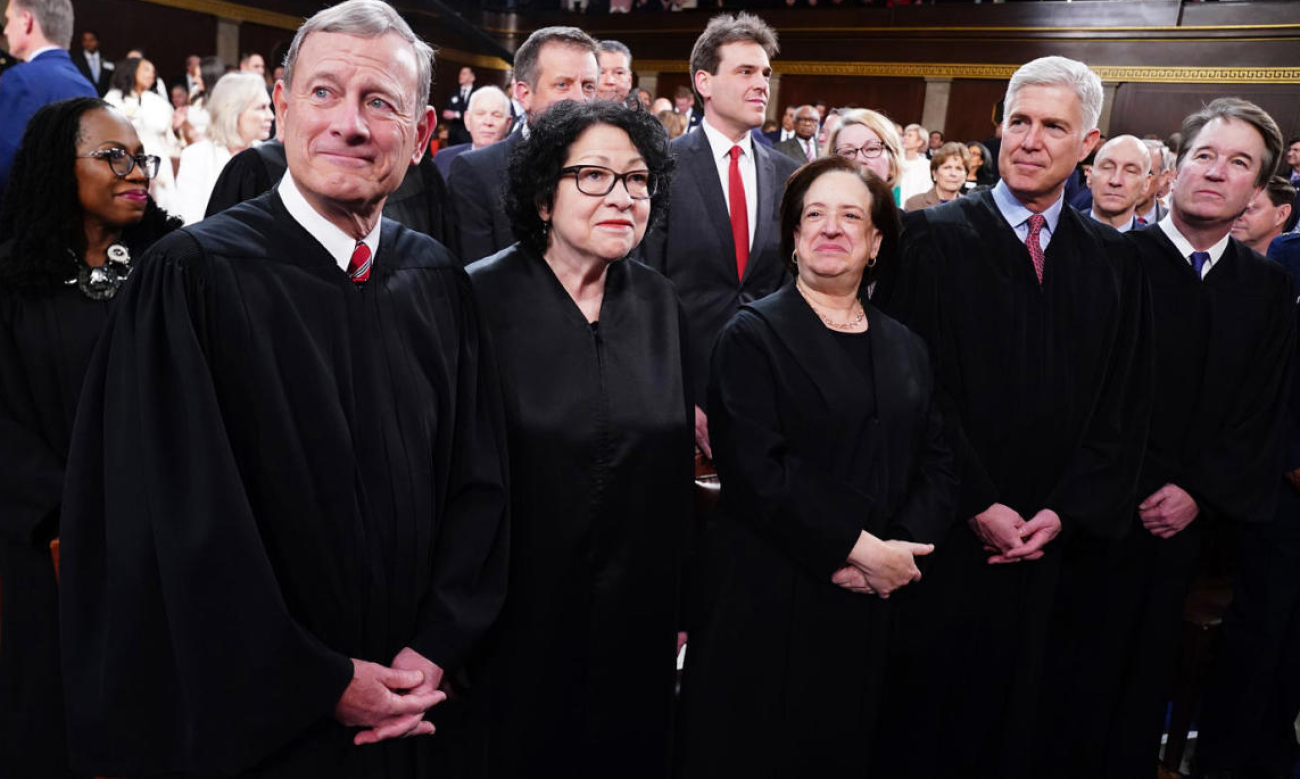Supreme Court Decision Could Have Major Impact on Trump’s Deportation Authority
In a significant legal dispute, the Justice Department is working to reverse a lower court’s temporary block on President Trump’s use of wartime powers to deport individuals allegedly connected to a Venezuelan gang. This case centers on the application of the Alien Enemies Act, an 18th-century statute that is being invoked for deportation efforts targeting suspected members of the Tren de Aragua gang. The issue has sparked considerable debate about the balance of power between the executive and the judiciary, with some legal experts warning that a Supreme Court ruling could reshape future government powers, particularly in immigration cases.
Core of the Dispute
The dispute arose after a federal appeals court hearing in Washington, D.C., where the Trump administration sought a delay in enforcing two lower court orders that had blocked deportation flights under the Alien Enemies Act. The Trump administration argues that the wartime powers granted by this statute are crucial for national security, allowing for quick deportations during times of heightened threats. However, critics of the measure argue that the individuals facing deportation have been denied the opportunity to contest their removal, raising important questions about their due process rights.
During a session at the D.C. Circuit Court of Appeals, the three-judge panel questioned lawyers from both sides about the fairness of the deportation orders and whether individuals had been given sufficient opportunity to challenge their classification as gang members. The discussion also touched on whether the venue for filing grievances was appropriate, adding complexity to the case. Though the panel has yet to issue a decision, it is clear that opinions among the judges vary widely, indicating deep legal divisions over the extent of executive power in such matters.
Potential Impact on U.S. Law
The legal ramifications of this case extend beyond the specifics of immigration law. Analysts have noted that the outcome could affect the broader balance of power between the executive branch and the judiciary. Some legal experts suggest that, if the case reaches the Supreme Court, it could set a precedent for how wartime powers are applied to modern-day immigration and national security challenges. Advocates for the Trump administration’s position argue that such broad presidential powers are necessary for swift action, especially in the face of security threats posed by criminal organizations.
At the same time, opponents of this expansive use of executive power warn that it could undermine individual rights and due process, setting a dangerous precedent for future administrations to wield similar powers without sufficient judicial oversight.
The Debate Over Due Process
At the heart of the legal conflict is whether the deportation orders deny individuals the opportunity to challenge their deportation in a judicial setting. Defense attorneys argue that the individuals affected by these measures deserve a fair chance to contest their classification as members of a criminal gang. They contend that, given the serious consequences of deportation under an outdated law, the process should not be expedited without sufficient legal safeguards.
On the other hand, the Justice Department argues that the urgency of national security concerns justifies the swift exercise of presidential authority, particularly when dealing with individuals tied to criminal organizations. The department insists that the temporary restraining orders issued by the lower courts are hindering the government’s ability to act quickly in protecting national security.
Future Implications for Executive Power
If the case is resolved in favor of the Trump administration, it could empower future presidents to more broadly use wartime powers in national security matters, possibly at the expense of individual rights and due process. This would likely pave the way for more aggressive measures in immigration enforcement, which could have significant consequences for how future administrations approach immigration policy and national security threats.
However, if the courts uphold the lower court orders and delay deportation efforts, it could signal a shift toward more judicial oversight of executive actions, especially in matters related to national security. Such a ruling might restrict future uses of emergency powers by the president and place greater emphasis on protecting individual rights within the legal system.
The Role of Congress
Lawmakers from both political parties are closely monitoring the developments in this case, recognizing that the ruling could have far-reaching implications for the balance of power between the branches of government. While some see the case as a necessary assertion of executive authority, others are concerned that it represents an overreach of presidential power. This divide is likely to fuel further debates in Congress regarding the scope of presidential powers, particularly in times of national crisis.
The case also underscores the challenges of applying historical statutes to modern issues, such as immigration and national security. As lawmakers grapple with these challenges, there is a growing recognition that the laws governing executive power need to evolve to meet the complexities of contemporary threats.
Conclusion
The legal battle over President Trump’s use of the Alien Enemies Act to deport suspected gang members is a pivotal moment in the ongoing debate over executive power and individual rights. While the case centers on the specifics of immigration law, it raises broader questions about the limits of presidential authority and the role of the judiciary in protecting due process. The outcome of this case could set important precedents for future U.S. governance, influencing how future administrations approach national security, immigration enforcement, and the use of wartime powers.
As the case progresses, legal observers will continue to watch closely, knowing that the final decision could have lasting effects on the interpretation of executive authority and the protection of individual rights within the United States legal system.
